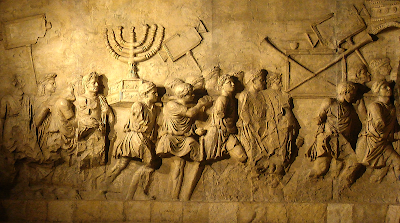 |
| Widow's mite |
Beware of religious people. Jesus is in Jerusalem investigating the religious institution there and he doesn't like what he sees (Mark 12-13).
He sees the religious leaders dressing and acting in ways that draw attention to themselves and away from the injustices they are purveying.
Jesus notes that they crave wealth so much that they "devour widows' houses." The term "widow" is used in the Bible to represent an entire class of underprivileged people, those who are the most vulnerable and lacking in power and access to resources.
See Exod 22:22-24; Deut 10:18; 24:17-21; 26:12-13; 27:19; Isa 1:17; 9:17; Jer 7:6; 22:3; 49:11; Zech 7:10; James 1:27; and 1 Tim 5:3, for examples of how serious God is about us caring for the marginalized.
Just as Jesus is commenting on the religious leaders' oppression of the poor, a number of rich people come and give large sums to the corrupt temple treasury. In the midst of them a poor widow comes and gives two copper coins, or about a penny.
 |
| The widow making her offering. |
The Greek word used for what she gave is bios, "life" - she literally gave all she had to live on.
This passage is often used as an example of proper stewardship in relation to giving. But that's not what's going on here.
Jesus is lamenting the widow's mistreatment under the corrupt temple structure; a structure that keeps her in poverty. She is a tragic example of a religious system that takes advantage of the very people most in need of its help.
The question for us is: Are our religious institutions protecting the most vulnerable members of our society? Or is there something inherent in the way we do things, that exploits the very people we are charged to protect?









































